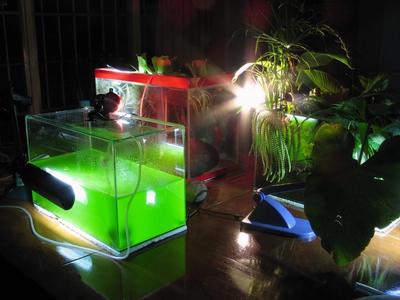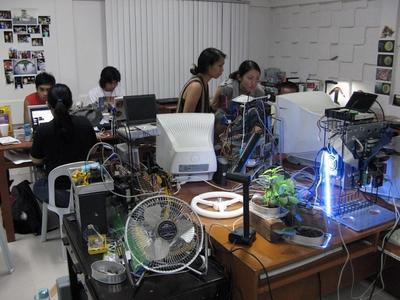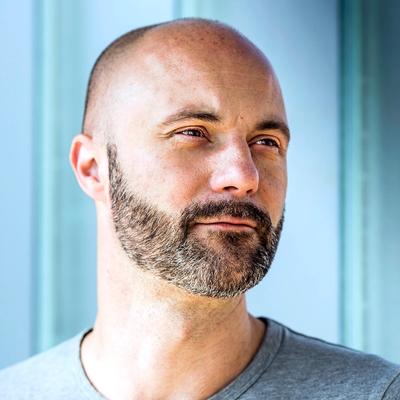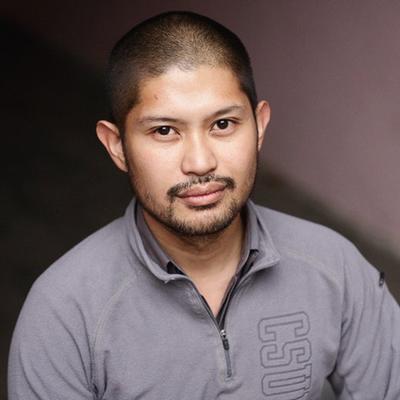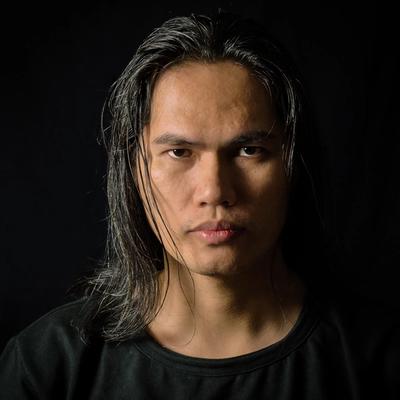Biomodd [LBA2]
![Biomodd [LBA<sup>2</sup>]](https://cdn.sanity.io/images/t39t9igo/production/79f9b60efa5ce37aa561734bb886b764fe5abf2b-1080x810.jpg?w=1152)
resources | |
|---|---|
| Biomodd [LBA2] introduction video | |
| Biomodd [LBA2] aquaponics video | |
| Student-created Biomodd DIY Manual (2012) | |
| When Ideas Migrate: A Postcolonial Perspective on Biomodd [LBA2] | |
| Biomodd: A Case Study In Combining Online Learning With On-Site New Media Art Practice | |
Biomodd [LBA2] was the second iteration of the project, and was created in the Philippines between February and October 2009. Its aim was to come up with a new and locally created version of the Biomodd concept after the first version had been successfully completed in Athens, Ohio the year before. The final result was a monumental wood and glass ‘sculpture’ that contained a network of recycled computers intertwined with an aquaponics system, and a multiplayer art game enabling visitors to directly interact with the piece. The aquaponics system was an elegant solution to recycle waste heat from electronics in a tropical context. Strictly capturing hot air to boost plant growth wouldn’t make sense in a hot climate. Instead, the waste heat was used to increase the water temperature of a fish tank, and consequently the metabolism of the fish. The resulting increased nutrient content of the water then boosted the growth of the plants in the aquaponics system. As such, aquaponics enabled a thermodynamic connection between computer activity and biological growth. As a locally co-created artwork, Biomodd always reflects the context in which it is being developed. For Biomodd [LBA2] the local (ecological) mythology of Maria Makiling was used as inspiration. Both Filipino woodcarvers and game designers created their interpretation of this mythology. Both results were then visually integrated and became part of the somewhat eclectic esthetics of the installation. Artist, computer scientist, and UPOU faculty Diego Maranan led Biomodd [LBA2] with Angelo Vermeulen to build the small but passionate initial group of volunteers. All in all, over 100 Filipino artists, scientists, engineers, gamers, craftsmen, volunteers and students were involved over the course of eight months. Social networking tools facilitated the expansion of this community.
Diego Maranan, Lai del Rosario, Vanessa “Vanni” Liwanag, Carlos Celdran, Al-Francis "King" Librero, Catherine Young, Christopher Nex Beñas, Tomas Leonor, J. Aleta Rivera-Villanueva, Kent Saga, Julius Voltaire Advincula, Leo Olavides, Roberto "Habs" Cervantes, Jr., Anne Loreen Lim, Jervis C. Tabangay, Melanie Trani, Nico Cadorna, Jeryl Estopace, Julius Cebreros, Ding Navasero, Trish Corpuz, Alex Ezequiel, Miam Aquino, Joel Aldor, Ayeen Karunungan, Tina Mantaring, Blaise Cedrick Gomez, Eisa Jocson, PJ Lanot, King David Javier Agreda, Angelo Vermeulen
